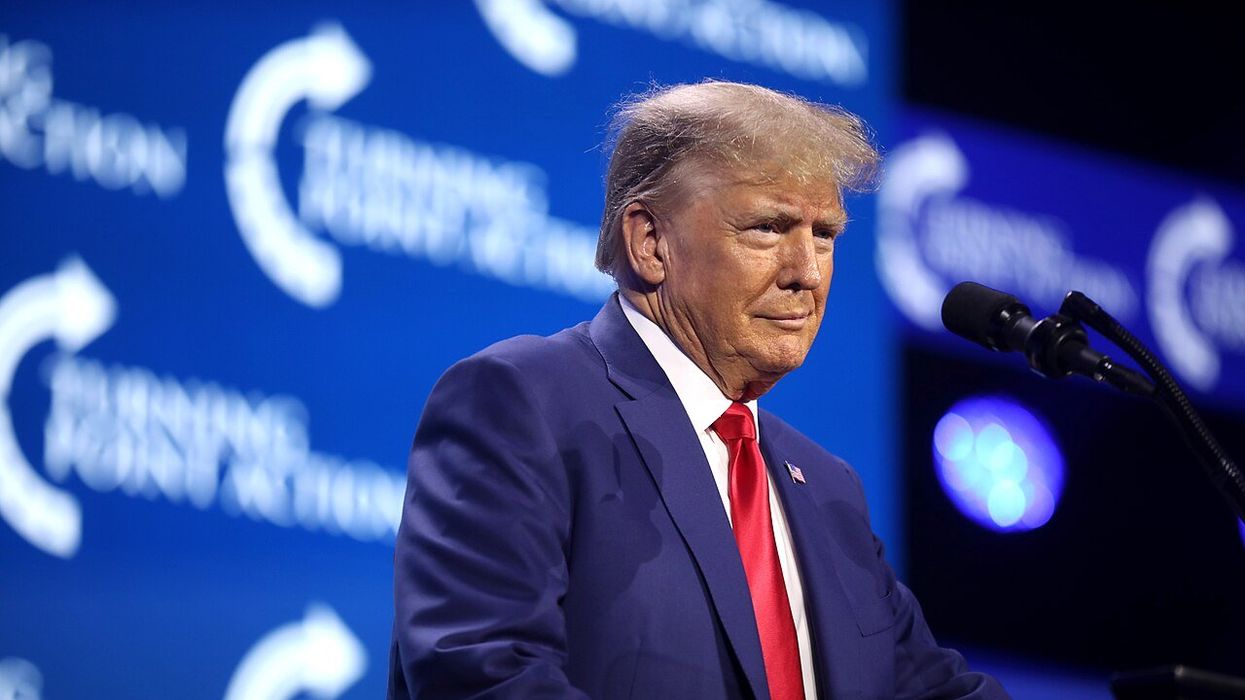'Threat to American democracy': Why Trump’s 4 indictments make Watergate look 'downright quaint'

August 24, 2023 | 11:16AM ETBank

Forty-nine years ago, on August 8, 1974, President Richard Nixon made a bombshell announcement: He was resigning. The following day, Vice President Gerald R. Ford was sworn in as president of the United States.
The Watergate scandal, which led to Nixon's resignation, was a major shocker during the 1970s. And Americans who were appalled by Nixon's corruption included not only Democrats, but some conservative Republicans as well. Putting principle above party, right-wing Sen. Barry Goldwater (R-Arizona) made it clear to Nixon that if an impeachment trial took place in the U.S. Senate, he wouldn't hesitate to vote "guilty."
In 2023, former President Donald Trump is facing a political shocker of his own: four criminal indictments. Reporters Linda Feldmann and writer Sophie Hills, in an article published on August 21, lay out some reasons why Trump's legal problems make Watergate pale in comparison.
POLL: Should Trump be allowed to hold office again?
"At this point, Watergate looks downright quaint," Feldmann and Hills write. "Engulfed by scandal, President Richard Nixon was on the verge of impeachment and certain Senate conviction when he resigned, never to run for office again. His successor, President Gerald Ford, pardoned Mr. Nixon in an act of mercy toward a broken man and a bid for national healing."
The journalists continue, "That was nearly 50 years ago. Today, a former president under fire has a wholly different makeup, and the politics are diametrically opposite: A twice-impeached, four-times criminally indicted Donald Trump is the overwhelming favorite to win the GOP's presidential nomination next year. And it's entirely possible he could win the 2024 election."
The Watergate scandal got its name from the Watergate Building in Washington, D.C., where, on June 20, 1972, five men broke into Democratic National Committee (DNC) headquarters. Some of Nixon's allies went to federal prison because of Watergate.
But Feldmann and Hills emphasize that Trump's legal problems are much worse, as U.S. democracy itself is under threat.
READ MORE: 'He's going to get tired of losing': Watergate prosecutor ridicules Trump’s arguments
"(Trump) and President Joe Biden are locked in a statistical dead heat, polls show," the reporters explain. "What's more, Mr. Trump faces felony charges, both federally and in Georgia, that go right to the essence of democracy: alleged efforts to overturn the 2020 election results. In that light, presidential historians say, the United States is at a turning point, with two possible outcomes."
Feldmann and Hills continue, "'The charges could prompt a 'resurgence of democratic norms and principles,' says Lindsay Chervinsky, a senior fellow at the Center for Presidential History at Southern Methodist University. Or we could be seeing the precursor to a presidency unlike any in American history, including Mr. Trump's first term. If he does return to office, Dr. Chervinsky says, 'he's made it very clear that he will go after his political enemies and he will not be held accountable in any way by our democratic institutions.'"
Presidential historian Julian Zelizer, who teaches at Princeton University in New Jersey, warns that the outcome of Trump's indictments will have a profound effect on the wellbeing of U.S. democracy.
Zelizer told CSM, "In the same way Ford set one in '74, this sets a very different one…. The cumulative effect of all four, even the state and local indictments, will set a precedent that if you abuse your power, if you're seen as going beyond what's permissible, the law will come after you even after you're president."
In 2021, former House Speaker Nancy Pelosi (D-California) made it clear that she regarded former Rep. Liz Cheney (R-Wyoming) and ex-Rep. Adam Kinzinger (R-Illinois) as the loyal opposition when she picked them for the January 6 Select Committee. Pelosi has some major policy disagreements with those conservative Republicans, but it was obvious during the Committee's hearing that they regarded one another as the loyal opposition and believed they had a mutual interest in saving U.S. democracy.
Henry Olsen, a Washington Post columnist and Never Trump conservative, believes the "loyal opposition" concept is crucial to the U.S. remaining a democratic republic.
Olsen told CSM, "If you cannot see the opposition as loyal, then logic drives you to suppress the opposition in ways that mean they can't win. That's the threat to American democracy.”
READ MORE: 'His hands are drenched in blood': Recalling Henry Kissinger's legacy as he turns 100
The Christian Science Monitor's full article is available at this link.